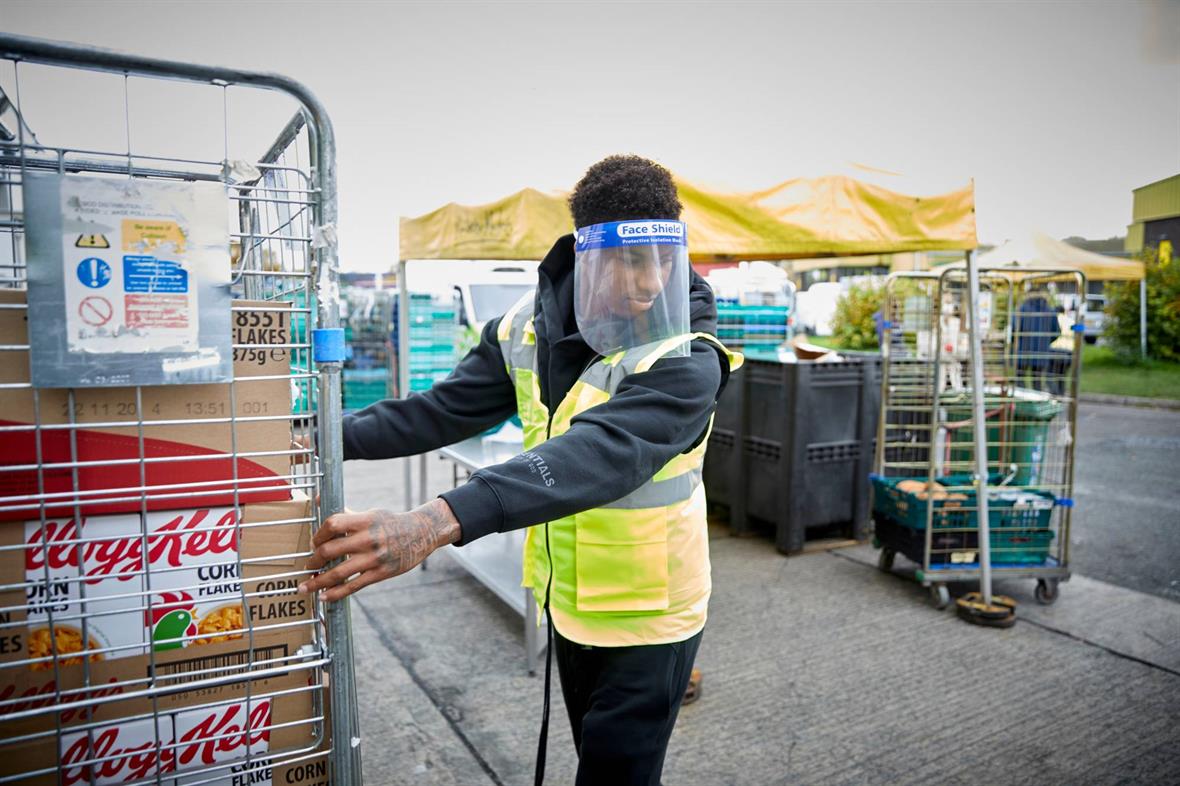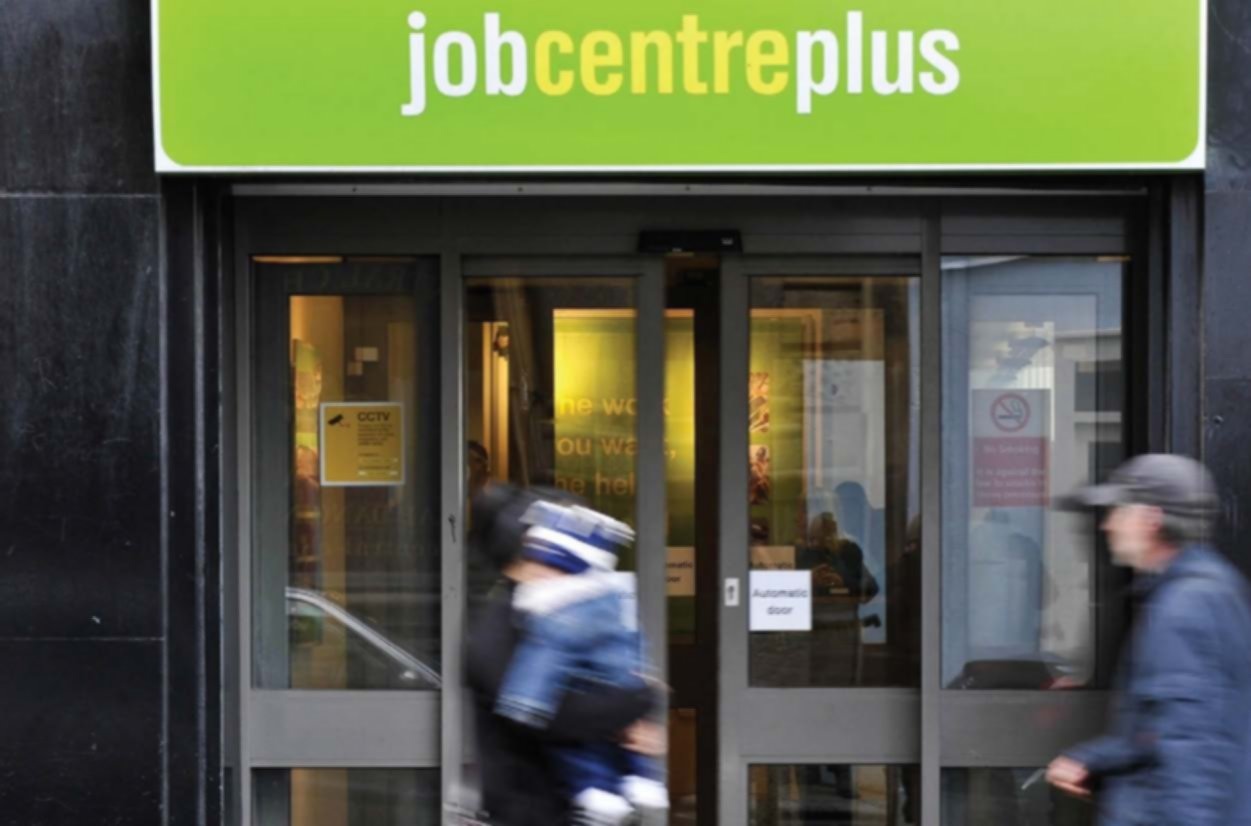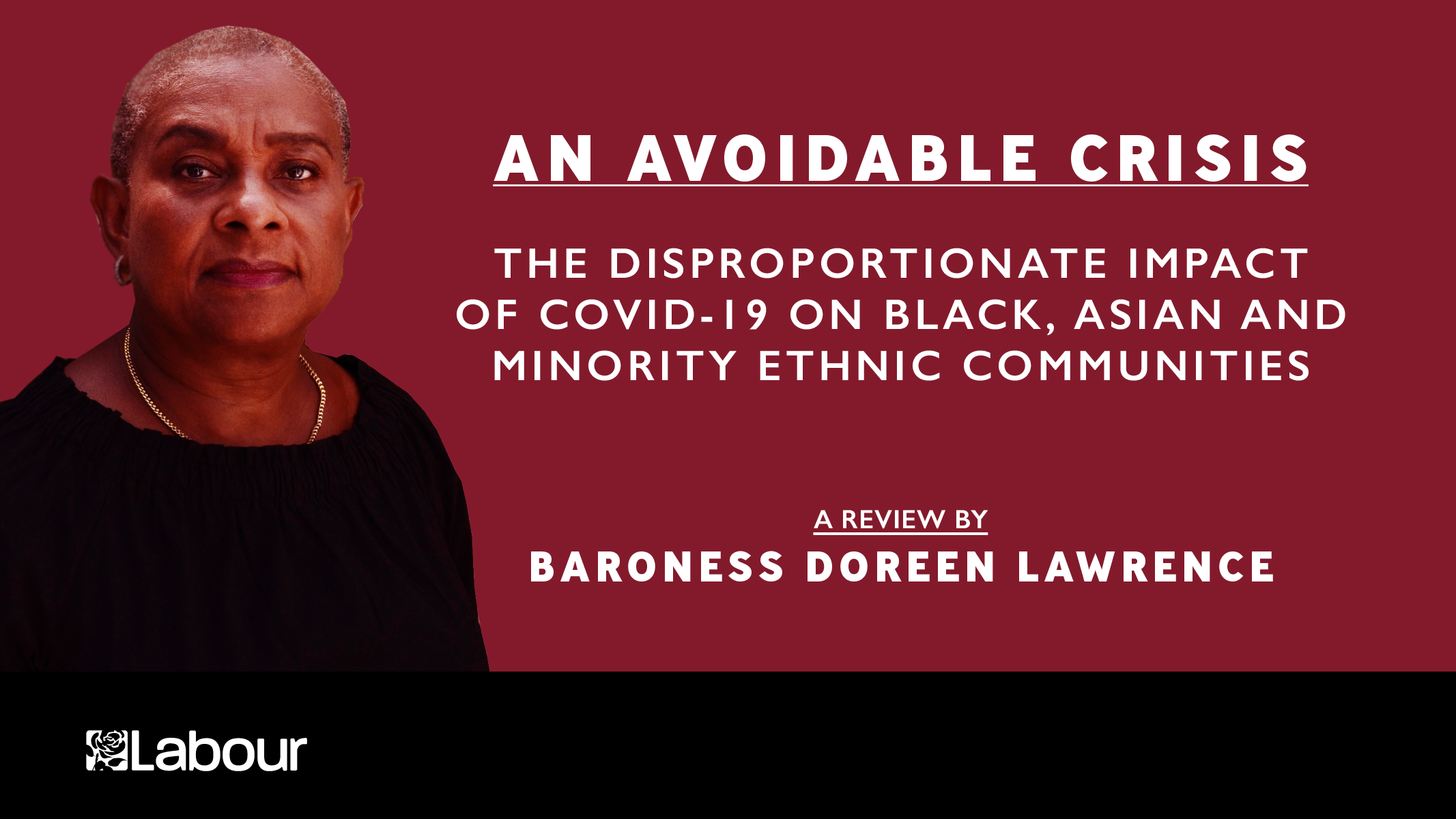Talking Points: October 2020
Posted on 04 Nov 2020 Categories: Blog, Coronavirus, Inequality, Local initiatives, Talking Points
by Rethinking Poverty
With the UK now facing a second wave of coronavirus and an England-wide lockdown just announced, October’s Talking Points is less focused on recovery and the changing world of work and more on the unequal effects of the pandemic so far, and how the harmful impact of a second wave can be minimised. But first, a rare good news story about Britons’ attitudes to welfare benefits, apparently at their most positive for 20 years. Something for the country to build on as we think about limiting the damage to the most vulnerable.
Softening attitudes on benefits
Public support for more generous welfare benefits is at its highest level since the late 1990s, according to the most recent British Social Attitudes Survey. There has also been a significant softening of attitudes on immigration. The research for this was carried out last year. ‘The findings … indicate that seemingly entrenched popular views on benefits – that they create welfare dependency and encourage “shirking and skiving” – are melting away,’ writes Patrick Butler in the Guardian.
Johnson and the public mood are now poles apart, says a 26 October Guardian editorial. A survey for the Mail on Sunday found 71 per cent of people supporting Rashford against the government over free school meals for disadvantaged children in school holidays, with just 18 per cent against. In addition, 2,000 paediatricians sent a letter of protest at the government position, while there has been widespread local action by councils and voluntary groups to step into the breach.

A new study published by the More In Common thinktank finds that since February a majority of people feel they have an increased awareness of how others live their lives. ‘Ahead of a winter that is certain to bring great hardship, joblessness and stress, as the country copes with the second wave of Covid-19 infections, citizens keep demonstrating that they want no one to be left behind in the ongoing national emergency.’
Sadly it’s not all good news on attitudes. New research by YMCA found that most black British children report experiencing racism at school, with 95 per cent saying they had witnessed racist language at school and almost half saying they believed racism was the biggest barrier to academic attainment.
So many left behind
BAME communities
On 27 October Baroness Doreen Lawrence launched a new report into the disproportionate number of deaths of Black, Asian and ethnic minority communities from Covid showing that ‘Black, Asian and minority ethnic people have been overexposed, under protected, stigmatised and overlooked during this pandemic – and this has been generations in the making.’ These findings are reflected in an article by Haroon Siddique, published a few weeks earlier, who concludes that BAME groups are set to be hit hard again as Covid second wave grips UK nations, with the government facing ‘accusations that it has been slow to act to protect vulnerable groups’.
Children and young people
There has been a surge in the number of UK children registering for free school meals. Analysis by the Food Foundation thinktank estimates that as many as 900,000 more children have sought free school meals, on top of the 1.4 million who were already claiming, as the Covid-19 crisis plays havoc with family incomes. This comes on top of pre-Covid child poverty increases in England across the north and Midlands. The north-east saw the most dramatic rise in child poverty, up nine percentage points between 2014-15 and 2018-19.
Children and young people are at risk of becoming a ‘lost generation’, ‘scarred for life’, because of the UK government’s pandemic policies, members of Sage have warned. Those aged 7 to 24, sometimes called generation Z, ‘have largely avoided the direct health impact of the coronavirus’, writes Amelia Hill, but ‘they risk being “catastrophically” hit by the “collateral damage” wrought by the crisis’.
The UK faces a ‘period of destitution’ in which families ‘can’t put shoes on’ children, the government’s former homelessness adviser, Dame Louise Casey, has warned. She told the BBC that many ‘normal people, trying to get on in normal lives’, risked falling into poverty. Food aid charities have identified the emergence of the UK’s ‘newly hungry’, a growing cohort of people previously in good jobs and enjoying comfortable incomes who have been forced to use food banks and claim welfare benefits for the first time during the pandemic.
‘The UK coronavirus crisis – even more so in its second phase – is all about basic inequalities – and lockdown makes these worse,’ writes the Guardian’s John Harris.
The North
‘The health of our nation is not uniform across the country,’ writes Lancet editor Richard Horton in the Guardian. ‘There’s an eight-year difference in life expectancy between the north and the south of the UK … These differences in life expectancy hold a mirror up to the inequalities across our nation.’ He also finds another ‘interesting and important correlation. Is it a coincidence that the worst life expectancies in England track the upsurge in coronavirus? I don’t think so. The pandemic is not the making of a single coronavirus, but the combination of three epidemics: the virus, the chronic conditions that make people more susceptible to it, and a situation of deepening poverty and inequality.’
What can be done?
Millions of people face hardship going into the winter, think tanks and political groups have warned. It’s good news that mortgage holidays and the furlough scheme have been extended until the beginning of December to cover the period of the new England-wide lockdown, but this is only postponing the pain, and gaps remain in the social safety net, renters and the self-employed being two vulnerable groups.
Looking ahead, there is widespread feeling that ending the £20 increase in Universal Credit, which is due to happen this April, would be a disaster. An Institute for Fiscal Studies report says millions of families will lose 13 per cent of their benefits – around £1,040-a-year – though some will be harder hit.
A new joint report from the IPPR thinktank and the TUC calls for an urgent ‘family stimulus’ package alongside the chancellor’s new job support scheme to prevent hundreds of thousands of parents and their children falling below the poverty line this winter. ‘Increasing the child element of universal credit by £20 a week per child and removing the two-child limit would take more than 700,000 children and 300,000 adults out of poverty, put £11bn directly into the economy and increase GDP by £15bn,’ the report says.
The New Economics Foundation recommends targeting tax cuts at the poorest families because the very highest marginal tax rates are currently experienced by those on in-work benefits. Many employees on Universal Credit keep just 37p in every additional £1 they earn, with withdrawn benefits thus creating an ‘effective marginal tax rate’ of 63-75 per cent.

Covid job losses have led a cross-party group of MPs to call for trials of universal basic income (UBI). A letter to the chancellor, signed by more than 500 MPs, lords and local councillors, calls on the government to allow councils to run UBI trials in response to mass unemployment triggered by the Covid-19 pandemic. Launching a UBI would mean the state paying every adult a basic sum regardless of their income. ‘We must trial innovative approaches which create an income floor for everyone, allowing our families and communities to thrive.’
Meanwhile, a diverse group of faith leaders, including the Archbishops of Canterbury and York, has written to the prime minister calling for the urgent establishment of a cross-party commission with the mandate and resources to tackle child poverty in England.
The role of companies …
Governments should stop bailing out companies and support people, says the World Economic Forum. ‘One could expect that companies would have prioritized corporate resilience following the significant injection of public money to prevent the near collapse of the financial system … While governments have carried the burden of events such as COVID-19, companies have fundamentally spent the past 40 years returning capital to shareholders. … As we embark on the Great Reset, we must build entirely new foundations for our economic and social systems. Those foundations require market incentives that guarantee firms operate with society’s best interests in mind.’
When it comes to outsourcing public services, like the test and trace system, the issues are even more stark. ‘Our public services should never have become a gravy train for highly paid consultants and shareholders who are more interested in dividend returns than the needs of people and communities,’ say Tom Lloyd Goodwin and Neil McInroy. While many local authorities have recognised the problems with outsourcing and are starting to bring services such as refuse collection and recycling back in-house, outsourcing could work if it went to companies that value people over profit.
This process would undoubtedly be given a boost if elected mayors were given ‘short-term freedom to tax, borrow and spend – as has central government – to help rescue their local economies, be it on jobs, investment projects, the arts or sport’, as recommended by Simon Jenkins.
Inspiration from York
Plans have recently been submitted for the first stage of arguably the UK’s most ambitious council-led housing programme in a generation. The city is planning to build at least 600 homes across eight sites within York’s ring road, each designed to have a net carbon emissions figure of zero. Cars will be banished to the very corners of the sites, so the streets can be devoted entirely to people and play spaces. ‘Every element of the scheme, from the front door out into the transport network, is tuned to tackle the climate emergency head on.’

This is about democracy as well as climate change. ‘Perhaps the most important element is how the plans have been developed in close consultation with local communities, to ensure they link to their surroundings, unlike so many suburban-minded cul-de-sac schemes churned out by volume house builders … “It’s important that we tackle climate change, but also that we build houses people enjoy living in,” says Denise Craghill, York’s Green party councillor in charge of housing.’
Want to keep up-to-date with more articles like this? Sign up to our newsletter.
Posted on 04 Nov 2020 Categories: Blog, Coronavirus, Inequality, Local initiatives, Talking Points

